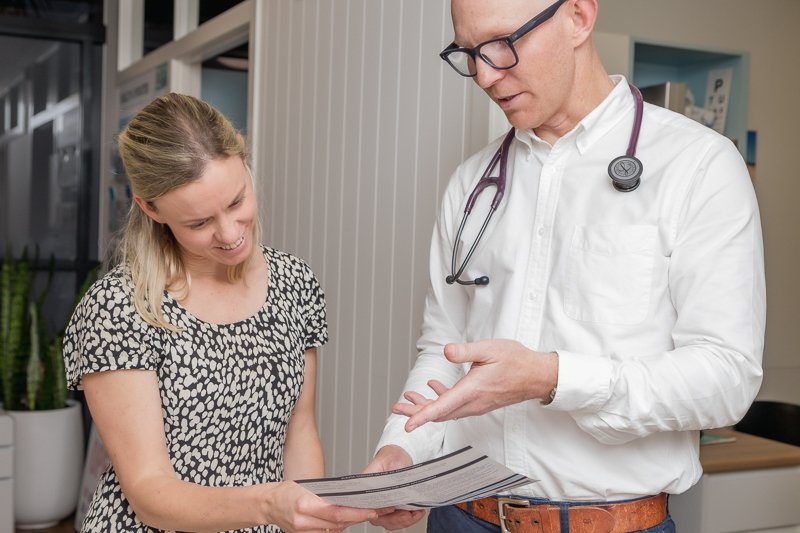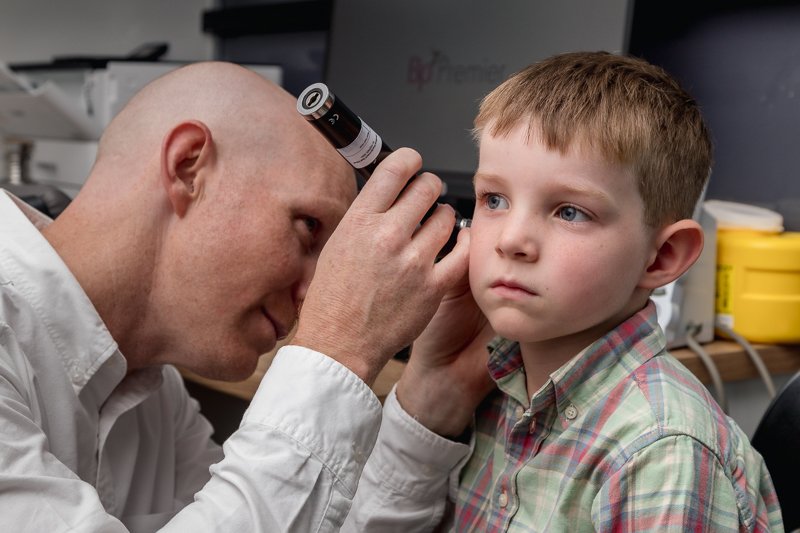What Is Endometriosis?
Endometriosis is a chronic condition affecting women. The endometrium is another name for the lining of your uterus. If you have endometriosis, cells similar to the ones that line your uterus appear in other parts of your body, most often your pelvic and reproductive organs, like your ovaries and fallopian tubes.
These extra endometrial cells then tend to behave as endometrial cells are supposed to. During your menstrual cycle, they thicken, then break down and begin to bleed – just as they would if they were in their proper place inside your uterus where the bleeding would become your period. Unfortunately, when the endometrial-like tissue is in the wrong place, there’s nowhere for the blood to go. The trapped blood can irritate surrounding tissues, causing scarring and abnormal bands of tissue that makes your pelvic tissues and organs stick together.
What Does Endometriosis Feel Like?
If that sounds painful, it’s because it is. Pain is the most common symptom of endometriosis.
You may notice pain during:
● Periods: Pelvic pain and cramps may last for days around the time of your period, alongside pain in your lower back or stomach.
● Sex: Many women with endometriosis experience pain during or after sex.
● Toileting: Particularly during your period, you might find it painful to urinate or defecate.
You may also experience other symptoms such as very heavy periods or bleeding between periods. Tiredness is common, alongside abdominal symptoms such as diarrhoea, constipation, bloating or nausea (often around the time of your period).
One of the most distressing consequences of endometriosis is that it can make it harder to get pregnant (though many women with the condition have had babies). Some women first discover they have the condition when they seek help to start a family.
So much for the physical experience of endometriosis. But there’s an emotional impact too. Endometriosis can make you feel frustrated, sad, depressed, angry and anxious. Living with a painful, long-term condition is not easy.
What Causes Endometriosis?
We don’t have a definite answer to that question yet. We think it may be due to:
● Menstrual blood flowing back into your fallopian tubes and pelvic cavity instead flowing out through your vagina
● The cells on the inside of your abdomen transforming into endometrial-like cells, perhaps caused by hormones or immune factors
● Cells in their very early stages turning into endometrial-like cells during puberty
● Endometrial cells attaching to a surgical scar after a C-section or hysterectomy
● Your immune system failing to identify and destroy endometrial-like tissue that’s growing in the wrong place.
Who Gets Endometriosis?
If you have periods, you can get endometriosis. You’re more likely to get it if you:
● Are in your 30s or 40s
● Have no children
● Have a short menstrual cycle with a new period starting fewer than 27 days after the last one
● Have a close relative with endometriosis
● Have a health condition that stops your period blood flowing out of your body normally
● Are underweight.
How Common Is Endometriosis?
Studies suggest that endometriosis affects 1 in 10 women of childbearing age.
How Is Endometriosis Diagnosed?
There are several tests to look for endometriosis. Your doctor may perform or order:
● A pelvic exam
● An abdominal and a transvaginal ultrasound
● A magnetic resonance imaging test
How Is Endometriosis Treated?
Thankfully, there are treatments for endometriosis. Medicine is usually the first choice, with surgery being used for patients with severe symptoms that are not relieved by medication.
Medication
Your doctor may recommend medicines to relieve pain, such as non-steroidal anti-inflammatory drugs. These can help you handle the more severe period pain caused by endometriosis
Hormonal contraception, such as the pill or an intrauterine device (IUD), is often used to reduce pain and bleeding in women with endometriosis who are not trying to get pregnant. Your doctor can discuss the different options available and recommend the best one to help you.
Other medications are reserved for women who are not managing or who are not able to tolerate combinations of the above classes of medicines.
If you have endometriosis and are trying to get pregnant, your doctor might prescribe a medicine that effectively puts you into a temporary menopause, which also helps control endometriosis. Pausing like this gives your body a chance to reset itself. When you stop taking the medicine (known as a gonadotropin-releasing hormone), you start ovulating again and have a better chance of becoming pregnant.
Surgery
Surgery is used for women who continue to experience severe symptoms or who are struggling to conceive. The aim is to remove the patches of endometriosis, usually through keyhole (laparoscopic) surgery. Most surgeons prefer thorough and careful removal of endometriosis tissue rather than removing your ovaries or uterus.
How Does Endometriosis Affect Pregnancy?
Endometriosis can make it harder to get pregnant, but it’s not impossible. Many women with endometriosis have successfully conceived, carried and borne children.
We’re still learning exactly how endometriosis affects fertility. Possibilities include:
● Endometriosis tissue changes the shape of the pelvis and causes blockages that make it harder for the sperm to find the egg
● Your immune system launches an attack on the embryo
● The endometrium (lining of your womb) does not develop properly, which means the embryo cannot implant into your womb.
There are treatments that can help you conceive, including medications and surgery. You may also benefit from seeing a fertility specialist.
How Can We Help?
Our GPs help many women with endometriosis. We’ll listen to you carefully to understand how endometriosis is affecting your life and then we’ll try to find the right approach to relieve your symptoms. That might be medication or surgery. It may also include emotional support to help you handle the difficulties of living with a long-term condition. The ‘right approach’ will vary throughout your lifetime, depending on your stage of life and the severity of your symptoms. We’ll walk alongside you, adjusting your treatment plan as necessary, and referring you to capable specialists when you need extra support.
Don’t deal with endometriosis alone. Book an appointment today and get the support you need to manage your symptoms.






